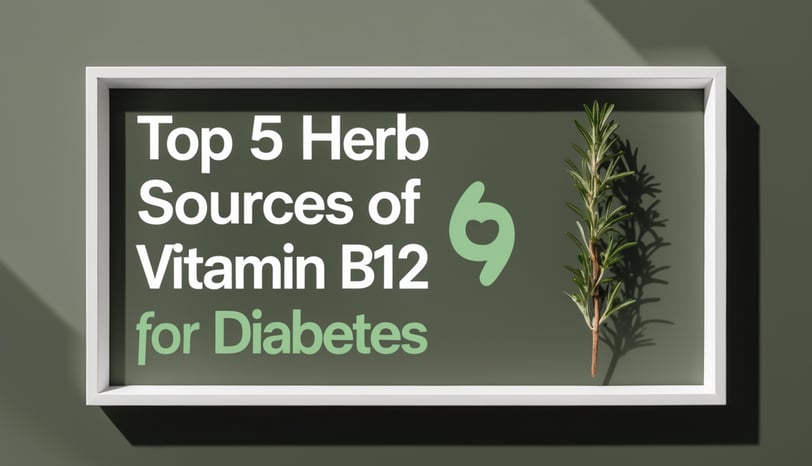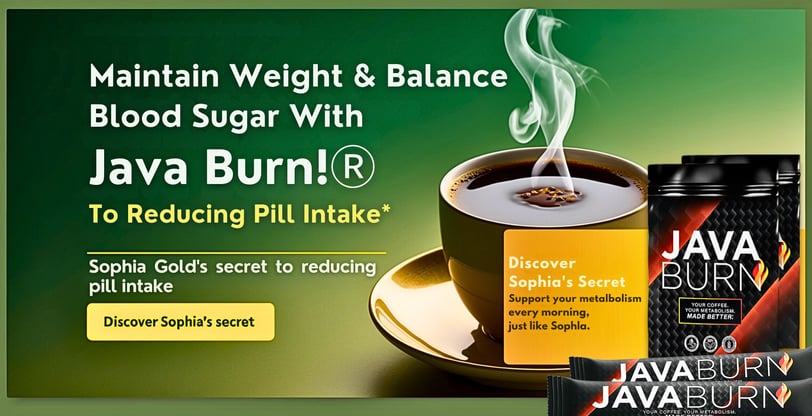Top 5 Herb Sources of Vitamin B12 for Diabetes 🌿
Top 5 Herb Sources of Vitamin B12 for Diabetes 🌿
Sophia Gold
8/7/20243 min read


Introduction: The Importance of Vitamin B12 in Diabetes Management
Vitamin B12 is an essential nutrient that plays a crucial role in maintaining nerve health, supporting red blood cell formation, and aiding in DNA synthesis. For individuals managing diabetes, maintaining adequate levels of vitamin B12 is particularly important, as deficiencies can lead to serious complications, including neuropathy and cognitive decline. While vitamin B12 is primarily found in animal products, certain herbs and plant-based sources can also contribute to your B12 intake. As someone who understands the challenges of managing diabetes, I know how important it is to explore all available options. In this article, I’ll introduce you to the top five herb sources of vitamin B12 that can help support your diabetes management plan.
Why Vitamin B12? The Benefits for Diabetes
Vitamin B12 is vital for many bodily functions, and its deficiency can exacerbate complications associated with diabetes. Here’s why vitamin B12 should be included in your diet:
Key Benefits of Vitamin B12:
Supports Nerve Health: Vitamin B12 is essential for maintaining the health of nerve cells and preventing diabetic neuropathy, a common complication of diabetes.
Promotes Red Blood Cell Formation: Adequate levels of vitamin B12 help prevent anemia, which can cause fatigue and weakness.
Supports Cognitive Function: Vitamin B12 plays a crucial role in brain health, helping to prevent memory loss and cognitive decline.
Enhances Energy Levels: Vitamin B12 helps convert food into energy, supporting overall vitality and combating fatigue, which is often experienced by individuals with diabetes.
Top 5 Herb Sources of Vitamin B12 for Diabetes
While it's important to note that vitamin B12 is primarily found in animal products, some herbs and plant-based sources are known to contain trace amounts or can support overall health in combination with other B12 sources. Here are the top herbs to consider:
1. Nori (Seaweed)
Benefit: Nori, a type of seaweed often used in sushi, is one of the few plant-based sources of vitamin B12. It provides a small but valuable amount of B12, making it a useful addition to a diabetes-friendly diet.
How to Enjoy: Use nori sheets to make sushi rolls, chop them into salads, or snack on roasted nori as a healthy alternative to chips.
2. Alfalfa (Medicago sativa)
Benefit: Alfalfa is rich in vitamins and minerals, including trace amounts of vitamin B12. It is also high in chlorophyll, which can support detoxification and overall health.
How to Enjoy: Add alfalfa sprouts to salads, sandwiches, or smoothies for a nutritious boost.
3. Spirulina (Arthrospira platensis)
Benefit: Spirulina is a blue-green algae that contains small amounts of vitamin B12, as well as other important nutrients like iron and protein. It's often used as a supplement to support overall health.
How to Enjoy: Mix spirulina powder into smoothies, juices, or sprinkle it over salads for a nutritional boost.
4. Moringa (Moringa oleifera)
Benefit: Moringa leaves are rich in vitamins, minerals, and antioxidants, including small amounts of vitamin B12. Moringa is known for its anti-inflammatory properties, which can be beneficial for individuals with diabetes.
How to Enjoy: Add moringa powder to smoothies, teas, or use fresh moringa leaves in salads and soups.
5. Chlorella (Chlorella vulgaris)
Benefit: Chlorella is another type of green algae that contains trace amounts of vitamin B12. It is also packed with chlorophyll, antioxidants, and other nutrients that support overall health and detoxification.
How to Enjoy: Incorporate chlorella powder into your diet by adding it to smoothies, juices, or taking it in supplement form.
The Science Behind Vitamin B12 and Diabetes
Research has highlighted the importance of maintaining adequate vitamin B12 levels for individuals with diabetes. A deficiency in vitamin B12 can lead to neuropathy, cognitive decline, and increased risk of cardiovascular issues. While herb-based sources provide only trace amounts of B12, they can complement a diet that includes fortified foods or supplements.
Notable Statistics:
Neuropathy Prevention: Adequate vitamin B12 levels can reduce the risk of diabetic neuropathy by up to 50%, according to clinical studies.
Cognitive Support: Regular intake of vitamin B12 has been shown to lower the risk of cognitive decline by 20% in older adults with diabetes.
Conclusion: Incorporate Herb Sources of Vitamin B12 into Your Diabetes Management Plan
While plant-based sources of vitamin B12 are limited, incorporating herbs like nori, alfalfa, spirulina, moringa, and chlorella into your diet can provide valuable nutrients and support overall health. These herbs, combined with other B12-rich foods or supplements, can help ensure you maintain adequate vitamin B12 levels, supporting nerve health, cognitive function, and energy levels. By exploring these natural sources, you can take a proactive approach to managing your diabetes and enhancing your overall well-being.
Resources for Further Reading:
Healthline: The Benefits of Vitamin B12 for Health
National Institutes of Health (NIH): Vitamin B12 and Diabetes


